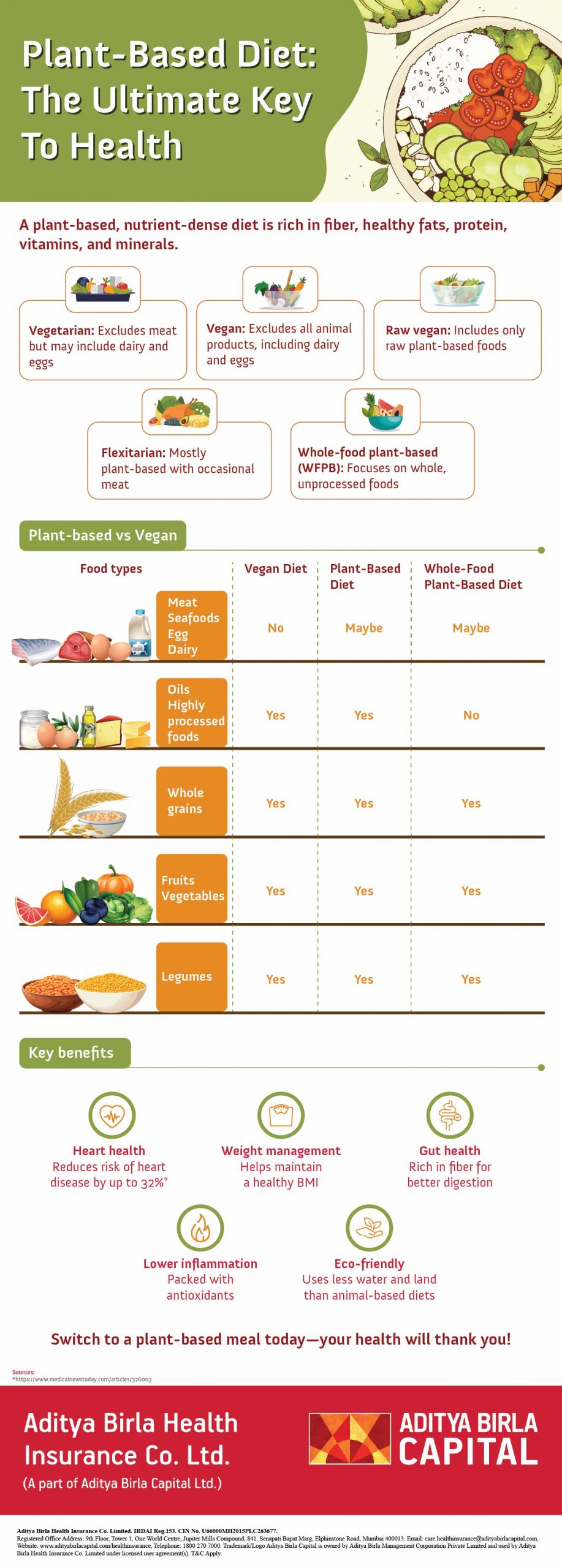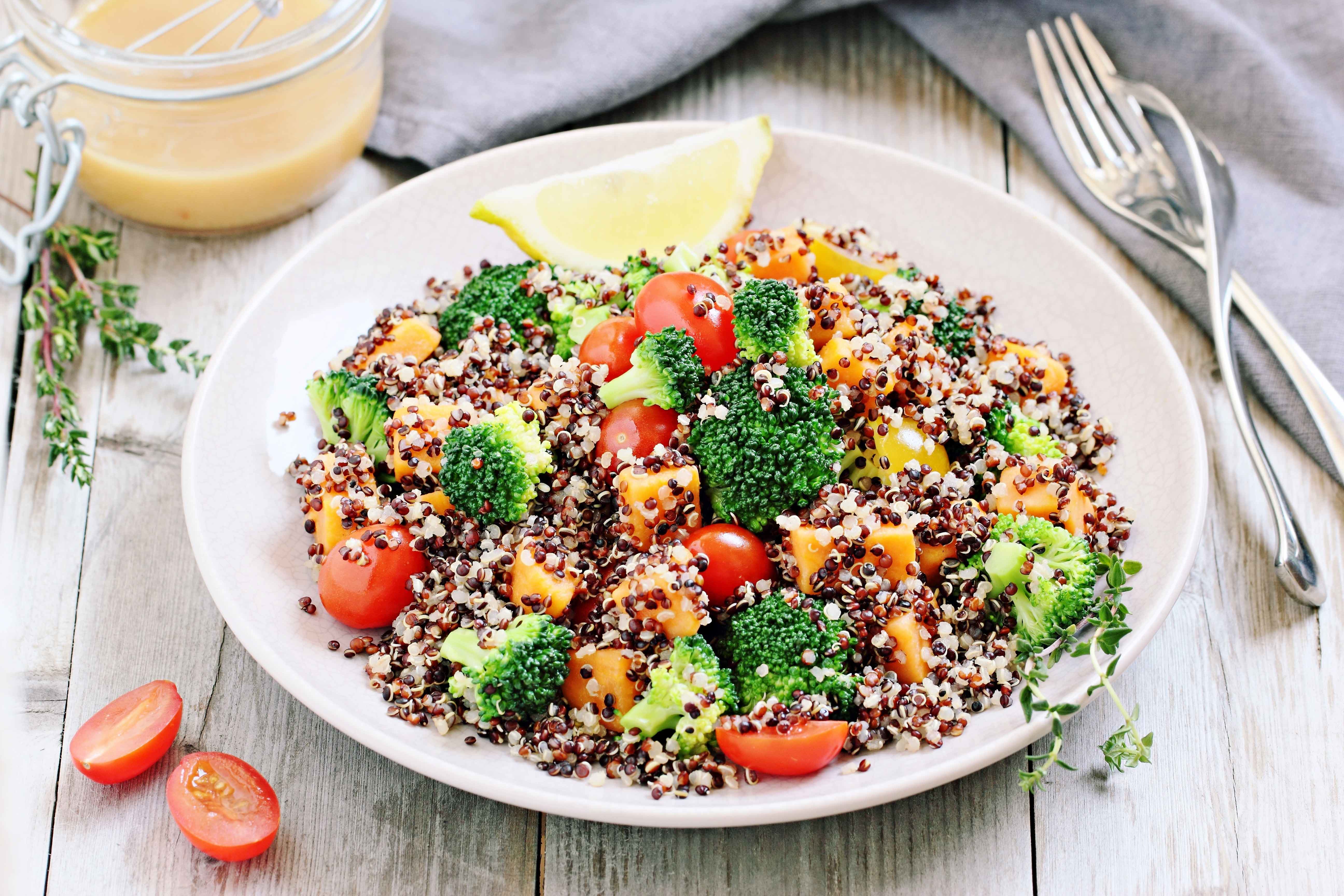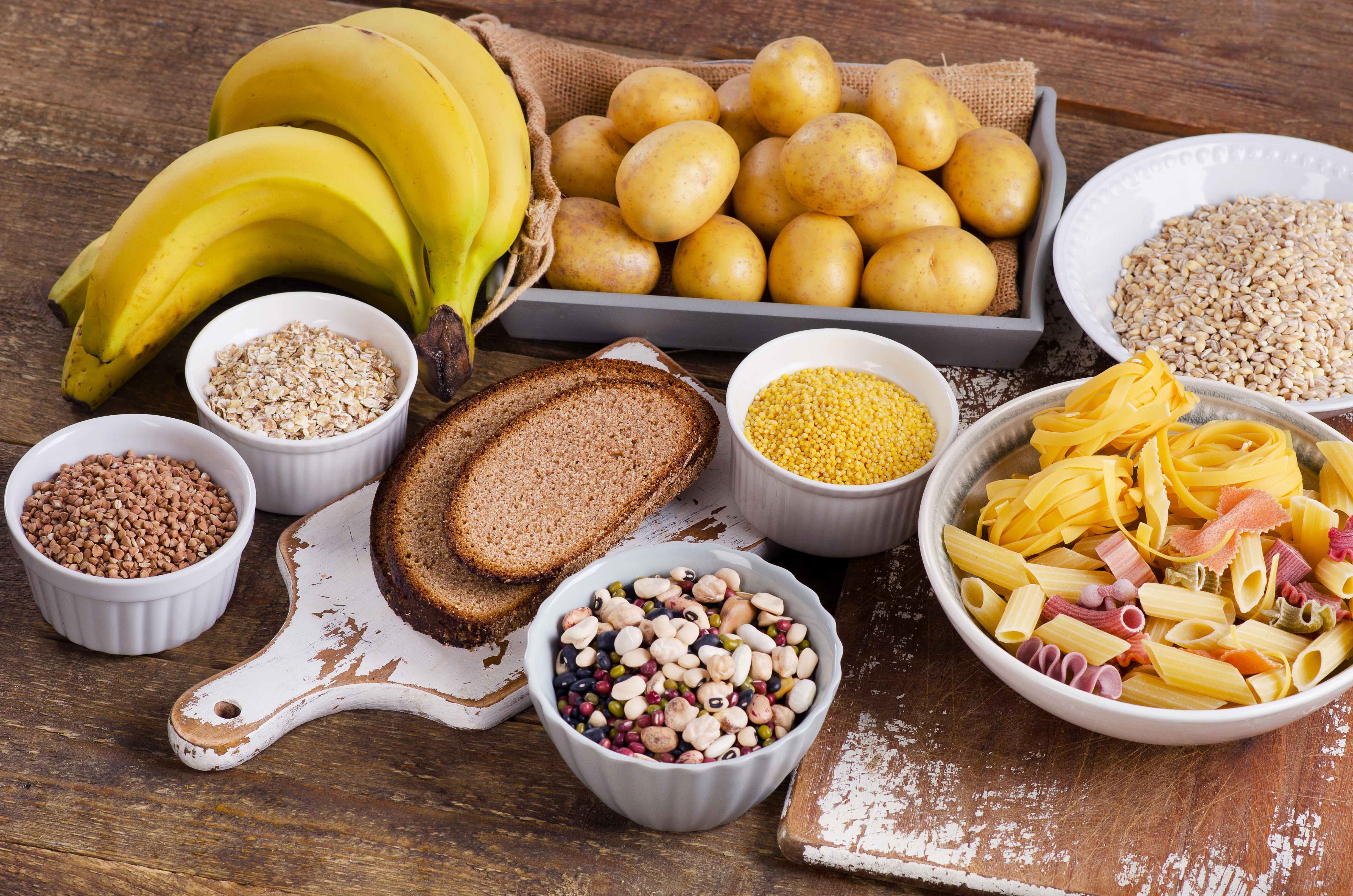
Many debate which diet is best for individuals. However, health and wellness communities concur that diets focusing on fresh, whole ingredients and reducing processed foods are better for overall wellness. The whole-food, plant-based diet achieves this.
What are plant-based foods?
A plant-based diet primarily consists of plant foods, including fruits, vegetables, nuts, seeds, whole grains, and legumes. It is not strictly vegetarian or vegan; one can consume poultry, beef, eggs, fish, and dairy products. However, most of your nutrient intake should come from plant-based sources. A plant-based diet has no fixed ratio of plant to animal foods, but starting with at least two-thirds of each meal comprising plants is a good approach. The focus should remain on plants.
Foods in a plant-based diet

A complete list of plant-based foods includes:
- Fruits: Berries, citrus fruits, pears, peaches, pineapple, and bananas
- Vegetables: Kale, spinach, tomatoes, broccoli, cauliflower, carrots, asparagus, and peppers
- Starchy vegetables: Potatoes, sweet potatoes, and pumpkin
- Whole grains: Brown rice, oats, quinoa, brown rice pasta, and barley
- Healthy fats: Avocados, olive oil, and unsweetened coconut
- Legumes: Peas, chickpeas, lentils, peanuts, and black beans
- Seeds, nuts, and nut butter: Almonds, cashews, pistachios, pumpkin seeds, sunflower seeds, and natural peanut butter
- Unsweetened plant-based milks: Coconut milk, almond milk, and cashew milk
- Spices, herbs, and seasonings: Basil, rosemary, turmeric, curry, black pepper, and salt
- Condiments: Salsa, mustard, nutritional yeast, soy sauce, vinegar, and lemon juice
- Plant-based protein: Tofu, plant-based protein sources, or powders with no added sugar or artificial ingredients
- Beverages: Coffee, tea, and sparkling water
If you consume animal products, do so in smaller quantities than plant foods.
Plant-based diet benefits
Everyone can gain from the health benefits of including more plants on their plates.
Helps in reducing excess weight
Your risk of obesity diminishes when you replace a meat-heavy diet with a plant-based one. Those who consume a plant-based diet generally weigh less, even if that is not always their primary goal.
One reason for weight management is that whole grains and vegetables are markedly low on the glycemic index, meaning they are digested quite slowly. Research indicates that fruit contains antioxidants and fiber, which help to prolong fullness. It is crucial to prioritize healthy, high-quality, plant-based foods if your goal is to manage weight.
Helps in lowering blood sugar and improving kidney function
A plant-based diet offers advantages for individuals with type 2 diabetes and worsening kidney function. It can result in reduced blood sugar levels and improved insulin sensitivity. Moreover, it helps to prevent and slow the progression of kidney disease.
Helps in lowering blood pressure

High blood pressure can increase the risk of heart disease, stroke, and type 2 diabetes. Fortunately, the foods you consume can make a difference. Several studies show that a plant-based diet can reduce hypertension or blood pressure, reducing your risk for those conditions.
Helps in reducing risks against certain cancers
The most effective way to obtain cancer-protective nutrients, such as fiber, vitamins, minerals, and phytochemicals, is to consume a diet abundant in vegetables, fruits, grains, beans, nuts, seeds, and certain animal products. This applies equally to cancer survivors. Research suggests that the protective advantages are likely attributable to the nutrients found in plant foods and the fact that such a diet helps maintain a healthy weight.
Lowers the risk of getting heart disease
Meat has saturated fat, which can contribute to heart problems when consumed in excess. Therefore, by reducing your meat intake and increasing your consumption of plant-based foods, you are benefitting your heart.
To help prevent cardiovascular disease, consume anti-inflammatory foods, which are primarily plant-based. These include green leafy and yellow vegetables, whole grains, extra virgin olive oil, fatty fish, tomatoes, and fruits. Additionally, avoid pro-inflammatory foods, such as processed meats, processed foods, fried foods, and refined sugar.
Reduces pain from arthritis
Research indicates that a plant-based diet can help alleviate pain from arthritis. This is because:
- Plant-based diets comprising fruits, vegetables, and whole grains offer nutrients that may assist in reducing inflammation
- They are high in fiber, which can improve gut health
- They reduce pro-inflammatory antibody levels in rheumatoid arthritis patients
Reduces cholesterol levels
High cholesterol may lead to fatty deposits in the blood, which may restrict blood flow and potentially result in a heart attack, stroke, or heart disease. However, a healthy diet can help keep cholesterol levels under control. Specifically, studies have shown that shifting from a diet predominantly composed of animal products to one primarily plant-based for eight weeks or less can lower LDL cholesterol by 12.1 percent.
A boon for the planet
A plant-based diet celebrates plant foods and minimizes animal products and highly processed foods. Plant-based diets have often been linked to several health benefits. Also, transitioning to a plant-based diet is an excellent choice for the planet. Adopting this way of eating will surely boost your health.
Key Takeaways
- A plant-based diet consists primarily of vegetables, fruits, whole grains, legumes, seeds, and nuts.
- Plant-based foods include apples, bananas, spinach, broccoli, potatoes, quinoa, barley, avocados, lentils, peanuts, almonds, cashews, and others.
- A plant-based diet helps reduce excess weight, blood sugar, risks against cancers, cholesterol levels, and more.
Stay tuned to the Activ Living Community. Keep up to date with the latest health tips and trends through expert videos, podcasts, articles, and much more on nutrition, fitness, mindfulness, and lifestyle conditions like Asthma, Blood Pressure, Cholesterol, and Diabetes. Activ Living ke saath sahi sehat ki shuruat ABHI karo.
You may also be interested in the following blogs:
- You Are What You Eat. Choose A Healthy Balanced Diet Today
- Vegan Diet Benefits You Need To Know On World Vegan Day
Popular Searches
How to lower blood pressure | Fruits good for liver | Unhealthy foods | Ragi Benefits | Basal Metabolic Rate | Acupressure points for High Blood Pressure | Ayurvedic medicine for blood pressure | How to control cholesterol at home | Homeopathy for Asthma | Biological Age | Home remedies for TB | Natural beta blockers | Negative effects of internet | Types of walking | Blood pressure calculator | Blood sugar calculator | BMI Calculator





 1800-270-7000
1800-270-7000










